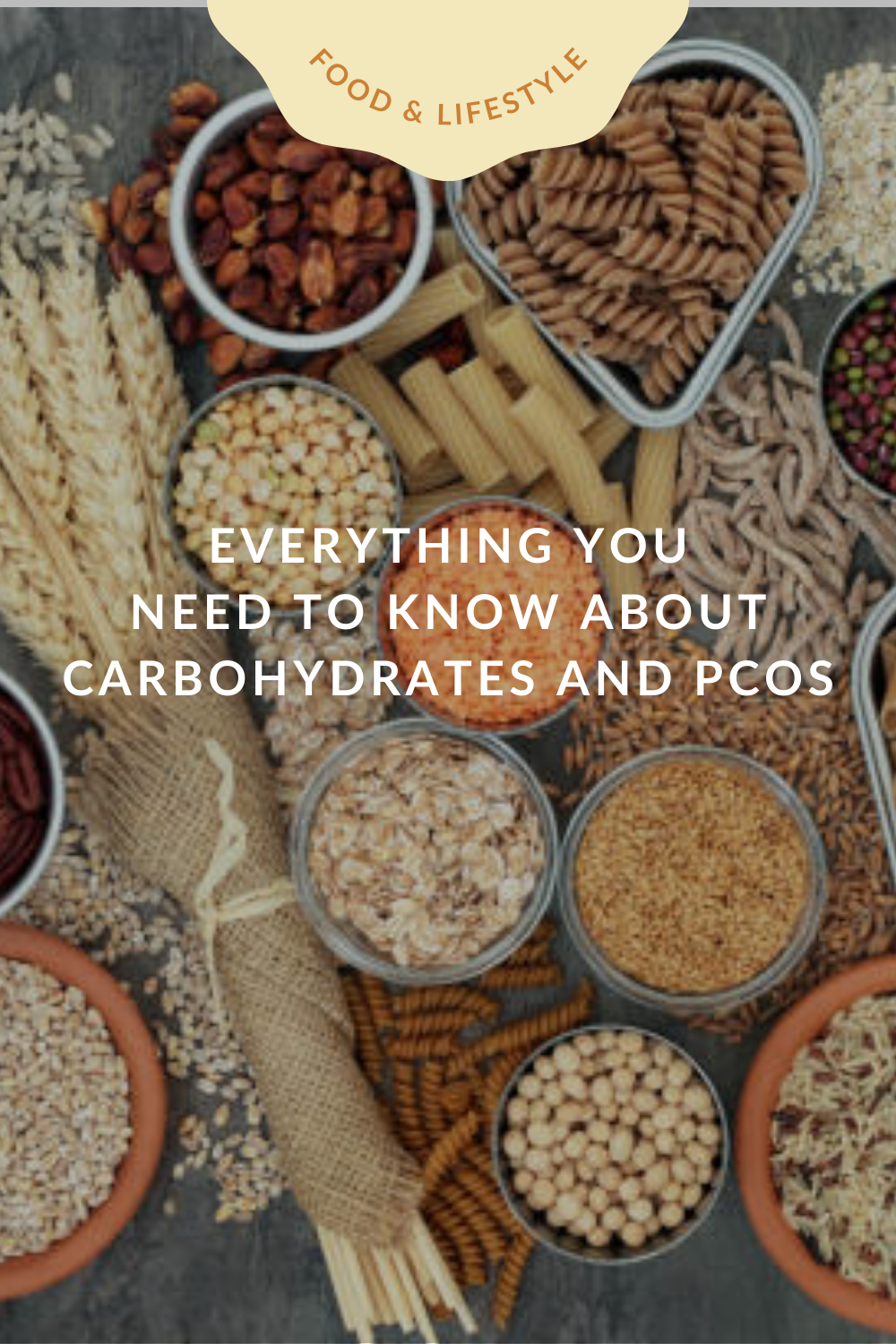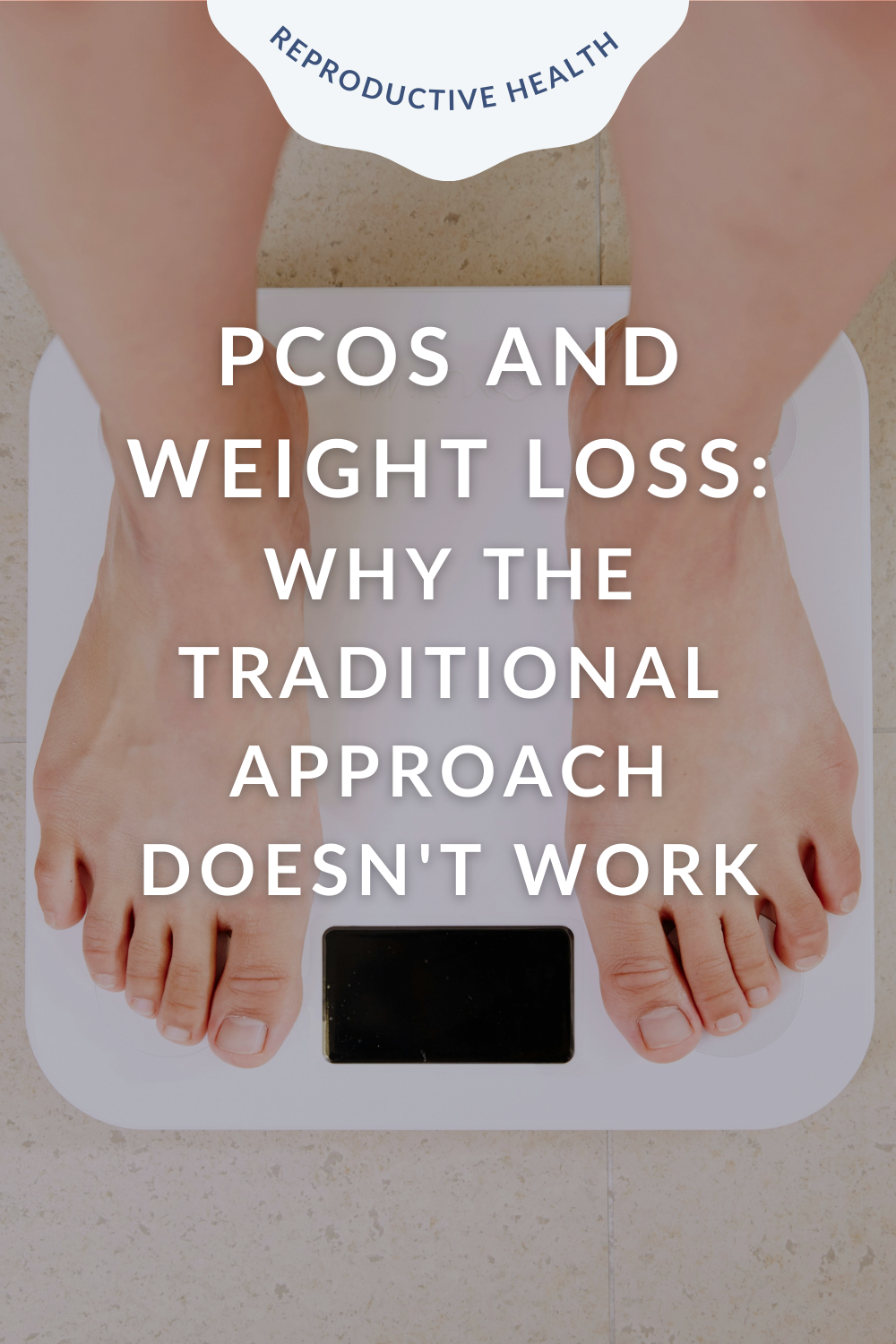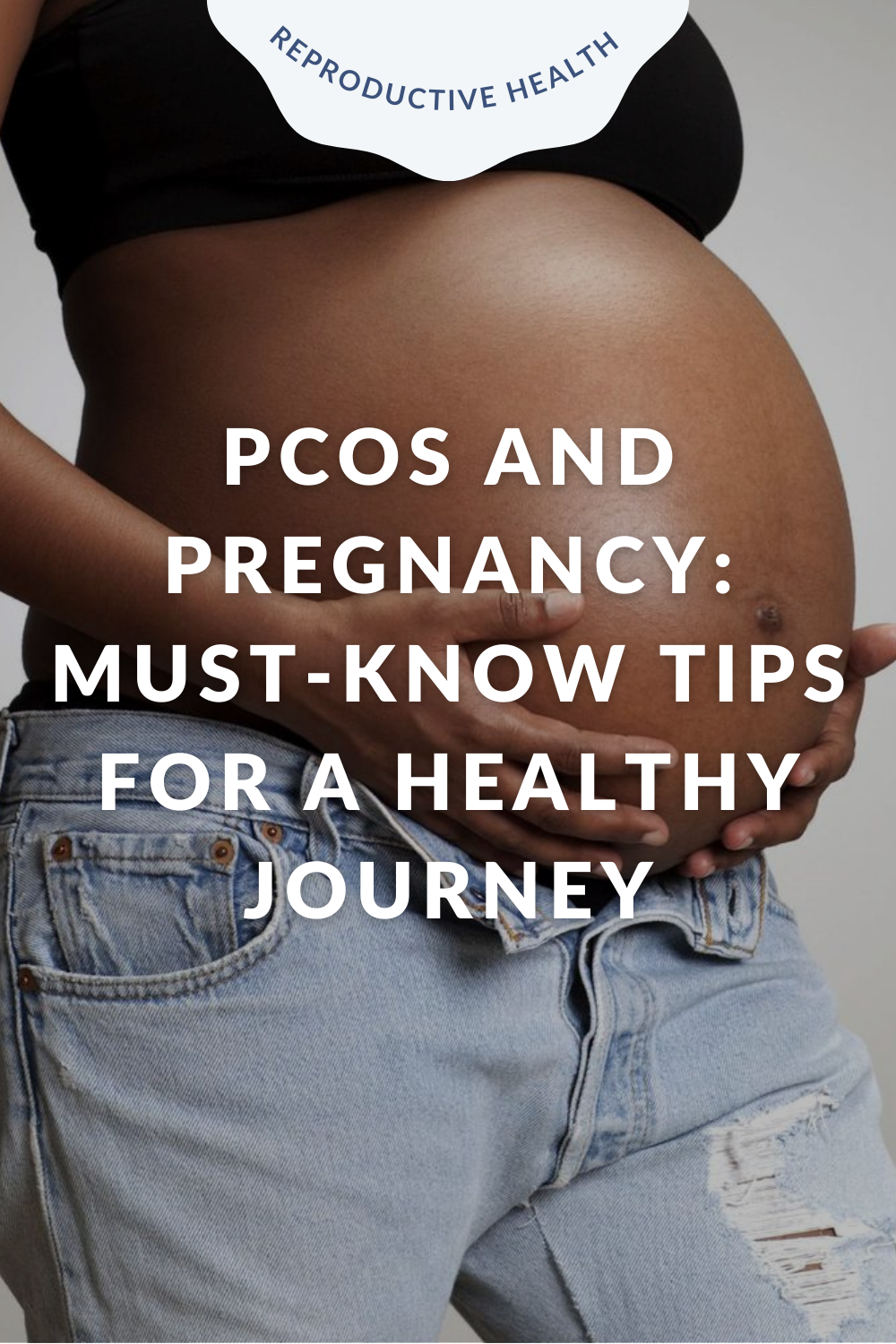Everything You Need to Know About Carbohydrates and PCOS
If you’ve ever Googled, “the best PCOS diet plan” or any variation of that, you’ll likely have come across strict keto, low-to-no carb regimens.
Spoiler alert: these are totally unnecessary, unsustainable and wastes valuable time, energy and effort towards truly managing your PCOS.
But, examining carbohydrates and being strategic about how you eat them is an effective way to manage your PCOS!
Today, we’ll dive into the world of carbohydrates. You’ll learn about how it impacts your hormones, dietary sources and how to enjoy them while supporting your PCOS and overall health.
What are carbohydrates?
Carbohydrates (carbs) are a macronutrient that is our body's preferred energy source and go-to fuel. When we eat carbs, our bodies break them down into sugar, which enters our bloodstream. This prompts our pancreas to release the hormone insulin, which moves the sugar from our blood into our muscles to be used for energy!
This energy is vital for many body functions, particularly the brain - the most demanding organ, gobbling up roughly 20% of the energy we get from sugar. This helps us stay mentally and physically sharp, and function at our best.
But here's the kicker: the type and amount of carbs you consume can shake things up in your body, influencing factors such as blood sugar levels and insulin sensitivity - two key things you need to pay attention to with PCOS.
Types of carbohydrates
There are three types of carbs:
Sugar
Sugar is a simple carb, meaning it causes a rapid rise and subsequent drop in your blood sugar levels. This explains why you may feel a quick burst of energy, followed by a drop. This includes natural and added sugars.
Added sugars are found in ultra-processed foods like sugar-sweetened beverages, desserts
Natural sugars are found in fruits, vegetables, dairy, honey, maple syrup and agave
Fibre
Fibre is a type of complex carb that you don't digest. There are many types of fibre. They all work together to support a well-functioning gut, keep you full for longer periods and regulate blood sugar and cholesterol levels.
For those with PCOS, higher fiber intakes are linked with increased insulin sensitivity, which can help manage cravings and lower the risk of Type 2 Diabetes. (To read more about nutrition and insulin, check out how to build balanced meals for balanced hormones).
Some examples of high-fiber carbs include:
Fruits: apples, peaches, papaya, pears, berries, oranges, kiwi
Vegetables: okra, carrots, broccoli, jute leaves, bell peppers, gai lan, cauliflower, potatoes, cassava, yams, squash
Whole grains: wild rice, bulgur, steel cut oats, quinoa, farro
Legumes: mung beans, red beans, black beans, chickpeas, lentils, pinto beans, edamame
Nuts and Seeds: almonds, peanuts, walnuts, pumpkin seeds, sunflower seeds
Starch
Starch is also a complex carb. They tend to take a longer time to be broken down into sugars by digestive enzymes in your body, keeping your blood sugar levels steady, making you feel full for longer, and giving you energy.
Starches can be found in various plant-based foods such as:
Legumes: lima beans, black beans, chickpeas, lentils, edamame
Fruits: apples, berries
Whole grains: barley, rice, oatmeal
Starchy vegetables: peas, corn, potatoes, cassava, yams, squash
Will eating too many carbs cause PCOS or diabetes?
We commonly get asked about PCOS and the low carb diet. Eating high carbs will not cause PCOS or diabetes. This is a common myth.
PCOS and diabetes are two complex disease with multiple risk factors, some are within our control, some are outside. Genetics and environment factors are important to consider - this can help remove the guilt and shame we often place on ourselves when faced with a new diagnosis.
When you eat quick-digesting, low-fibre carbs, it get broken down quickly, causing a speedy spike in your blood sugar levels. Thus, a faster release of insulin levels as well.
Now, insulin control is crucial so this rapid rise might not be the best news. Over time, many quick blood sugar spikes may worsen insulin resistance, a common underlying factor in both PCOS and diabetes.
But, that doesn’t mean carbs are harmful for PCOS and diabetes.
Imagine an alternative - choosing more slower-digesting, higher-fibre carbs like soba noodles, legumes, steel-cut oats, and a rainbow of fruits and veggies. The magic here? These foods create a much slower rise in your blood sugar levels, and thus insulin.
Rather than cut out all carbs, make gentle effort towards choosing more fibre-rich sources when possible.
How many carbs should I eat?
The Government of Canada recommends carbohydrates to contribute 45% to 65% of your daily calorie intake, across all age groups.
If you’ve been reading about low carb diets for PCOS, this may sound scary high. But in reality, most of the studies indicating benefits of “low carb diets” for PCOS fall into this range, albeit on the lower end, or only slightly below this. (Don’t you love buzzword headlines that instill unfounded fear?)
Keep in mind, this is a standard reference, and there is no one-size-fits all. In our experience, some people thrive within the higher end of this range, some on the lower, while some feel best outside of it.
Your carb requirements depend on so many factors, like activity level, health status and more. To find your unique carb tolerance and develop a sustainable eating plan, work with one of our Registered Dietitians in our 1-on-1 coaching programs!
The takeaway: How to enjoy carbs for PCOS
Choose variety and high-fibre sources:
Explore a diverse range of carbs and choose high fibre options often! Think colorful fruits, starchy and non-starchy vegetables, whole grains and legumes.
Balanced Meals:
This may surprise you, but your overall meal composition matters more than the type of carb you’re choosing! To build a PCOS-friendly diet, enjoy complete meals with a mix of macronutrients – proteins, fats, and, of course, carbs. Check out our "How to Build Balanced Meals for Balanced Hormones blog for more guidance.
By integrating all three in your meals, you create a balanced nutritional profile that fuels your body and naturally provides you with essential nutrients for daily functioning, helps regulate your blood sugar, and supports energy levels! Plus, it is very satiating and can help prevent intense hunger and cravings later on.
Rather than fear the mystified carbohydrate, it's crucial to understand how they affect your body, especially if you have PCOS.
This informed and balanced approach can help you enjoy your meals, stabilize blood sugars and insulin, and expand your intake of various micronutrients - all of which supports a healthy body and healthy hormones.
Until next time!
Hi! I’m Trista
A Registered Dietitian and reproductive health expert. I’m here to help you gain confidence to overcome your Polycystic Ovary Syndrome and digestive health woes, while bettering your relationship with food.
CATEGORIES
Looking for support to help manage your PCOS, diabetes, or overall health?
Work with our team of Registered Dietitians in 1-on-1 Nutrition Coaching Programs to receive personalized nutrition guidance, meal plans and messaging support to gain knowledge, confidence and clarity to build healthy eating habits that last.
References
Dietary Reference Intake Table, Health Canada
Carb Sources, BMC Medicine
Carbohydrates, NCBI
Dietary Fibre Intake, NCBI
PCOS, NCBI
Source and Amount of Carbs, Cambridge
Sugar for the Brain, NCBI















